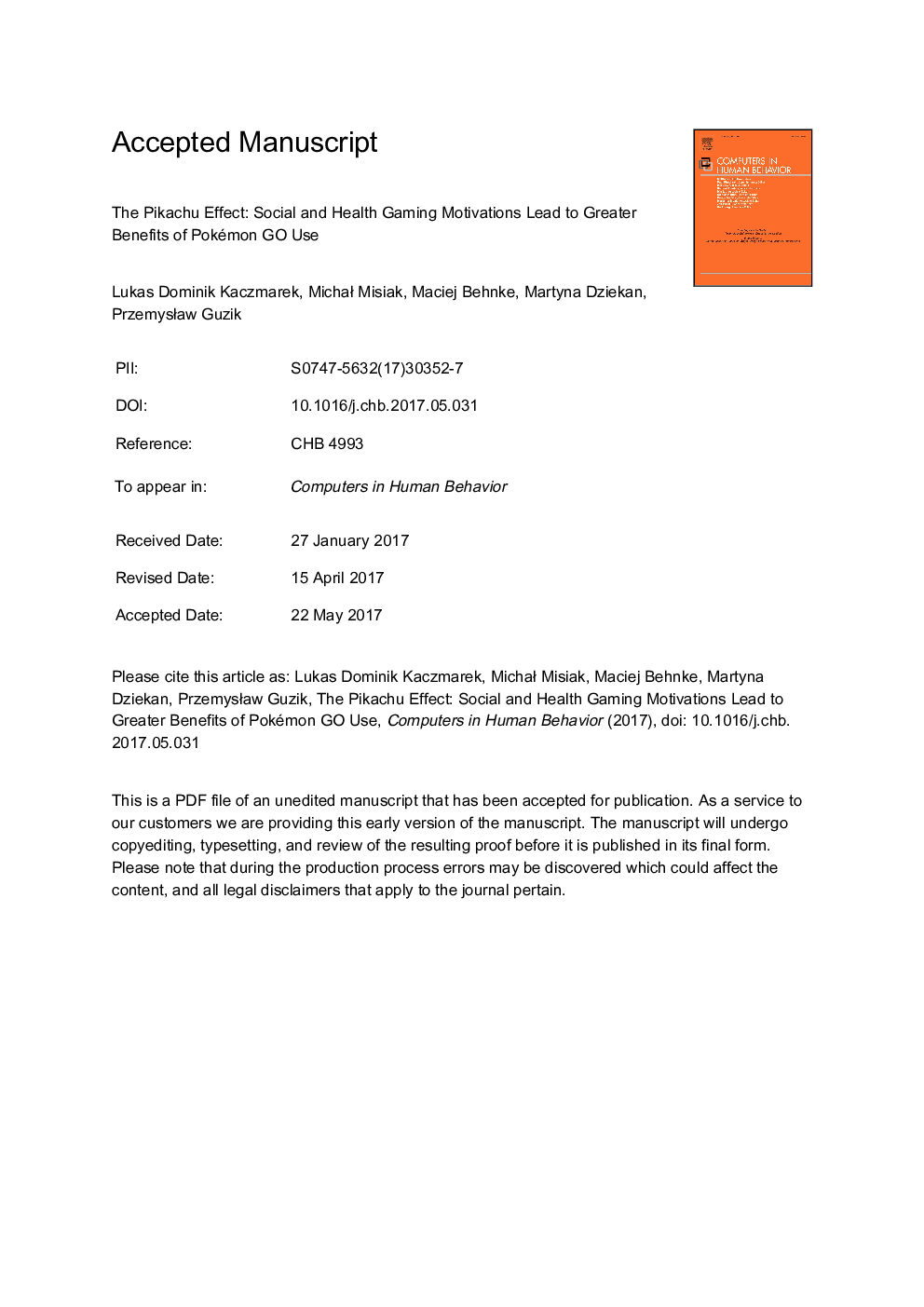| Article ID | Journal | Published Year | Pages | File Type |
|---|---|---|---|---|
| 4937507 | Computers in Human Behavior | 2017 | 30 Pages |
Abstract
Several studies provided evidence for the effectiveness of gamification of health behaviors (e.g., exercising or walking) via video games. However, little is known about whether individuals who endorse specific gaming motivations are more likely to derive health benefits from gaming. Building upon previous studies on gamification of health behaviors, we examined whether specific gaming motives (e.g., potential health benefits) influenced Pokémon GO gaming time and gaming health outcomes, a phenomenon we termed The Pikachu Effect. We introduced health motivation as a novel component among previously established gaming motives, which reflects the ongoing gameplay transformation and increased health potential of modern games. Volunteers (NÂ =Â 444) completed two measurements of Pokémon GO motivations, gaming time, physical activity, and time spent outdoors within a 6 week interval. The results supported the Pikachu effect hypothesis as health motivation and social motivation were related to health outcomes. Furthermore, we replicated previous findings indicating that individuals who spent more time playing Pokémon GO were more physical active. We also evidenced a new Pokémon GO playing behavioral benefit, i.e., increased time spent outdoors among more active players. We explored meaningful individual differences; for example, men played more and derived more benefits from Pokémon GO. These findings suggest that health motivation operates in parallel with previously identified main motives for gaming. Accounting for motivation is essential for a more accurate prediction of gaming time and gaming-related health behaviors.
Related Topics
Physical Sciences and Engineering
Computer Science
Computer Science Applications
Authors
Lukas Dominik Kaczmarek, MichaÅ Misiak, Maciej Behnke, Martyna Dziekan, PrzemysÅaw Guzik,
